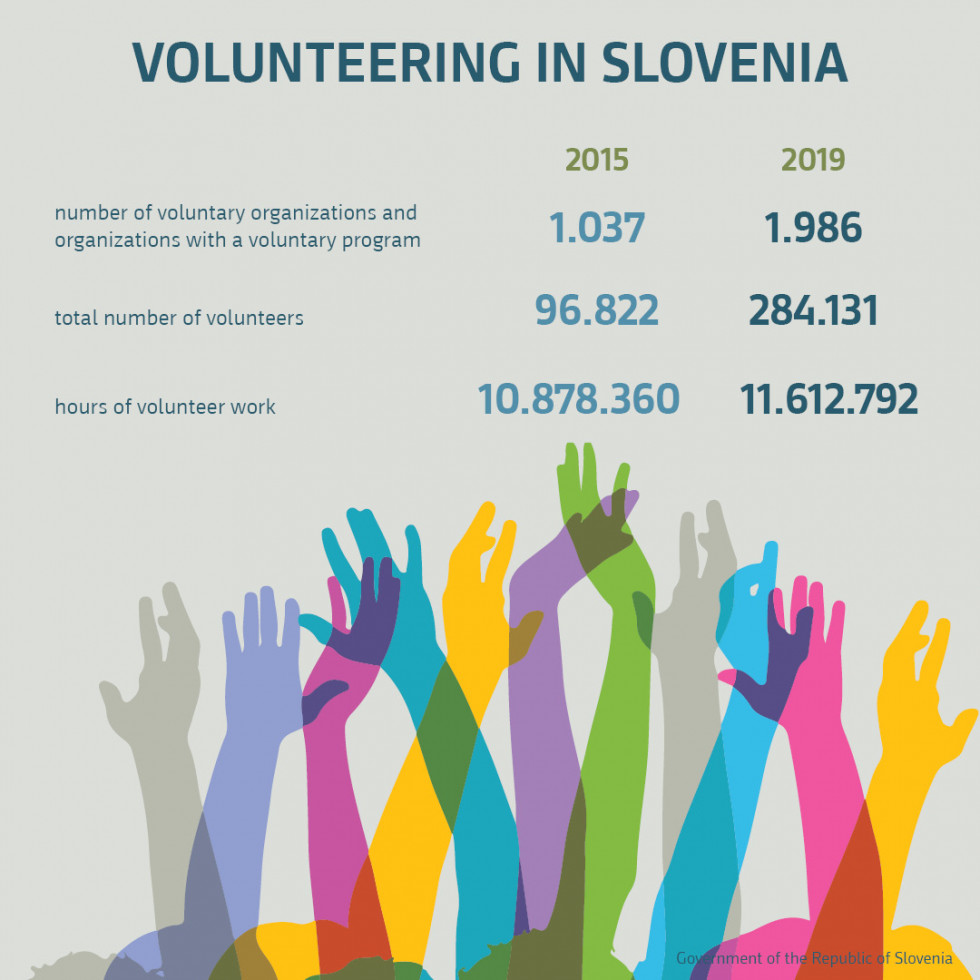Epidemic stimulates the development of new volunteer programmes
The quick and high-quality response during the crisis has once again proven the significance and power of volunteering. Last year, 1986 volunteer organisations and organisations with a volunteer programme were active in Slovenia. The 284,131 volunteers completed 11.6 million hours of volunteer work.
The novel coronavirus epidemic is interfering with larger group activities, e.g. with intergenerational visits by pupils and secondary school students to homes for the elderly and with socialising with patients in hospitals.
Volunteer organisations have adapted the forms of volunteer work to the recommendations for curbing the epidemic. However, they have also responded to the arising needs with new volunteer programmes.
For example, they provided transportation for the staff of homes for the elderly when there was no public transportation available, they have sewn protective masks, and they have delivered food to vulnerable individuals to an even greater extent. They have talked with the elderly who had to remain in their homes during the epidemic, helped measure the temperature of passengers at the border, repaired and delivered computers to pupils so that they can participate in distance learning, and provided distance learning support, while choirs and orchestras have performed in front of homes for the elderly.
Volunteers are ambassadors of solidarity. Their role in achieving the Millennium Development Goals set out in the UN declaration is irreplaceable. At the turn of the millennium, the UN pledged to strive to eradicate extreme poverty and hunger, achieve universal primary education and equal opportunities for all, reduce child mortality, improve maternal health, prevent the spread of HIV and other diseases, and ensure environmental sustainability.
Volunteering, a cornerstone of society, contributes to the noblest aspirations of humanity. It is a source of strength, solidarity and resilience for every community and one of its most important assets; it brings about positive social change and improves the quality of life in society by promoting respect for diversity and the participation of all.


